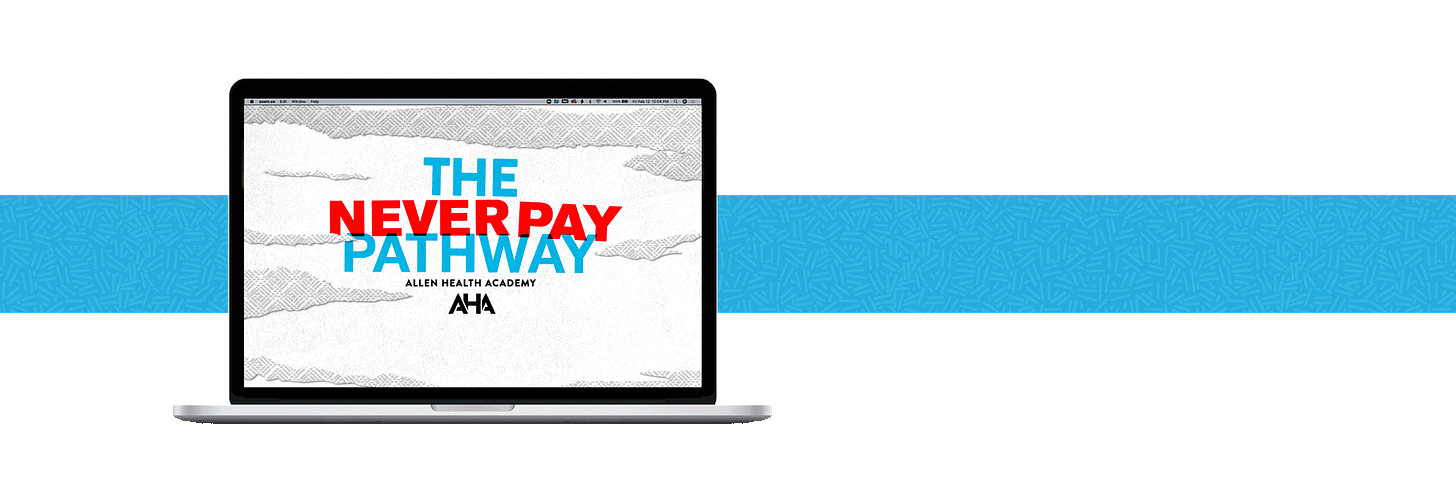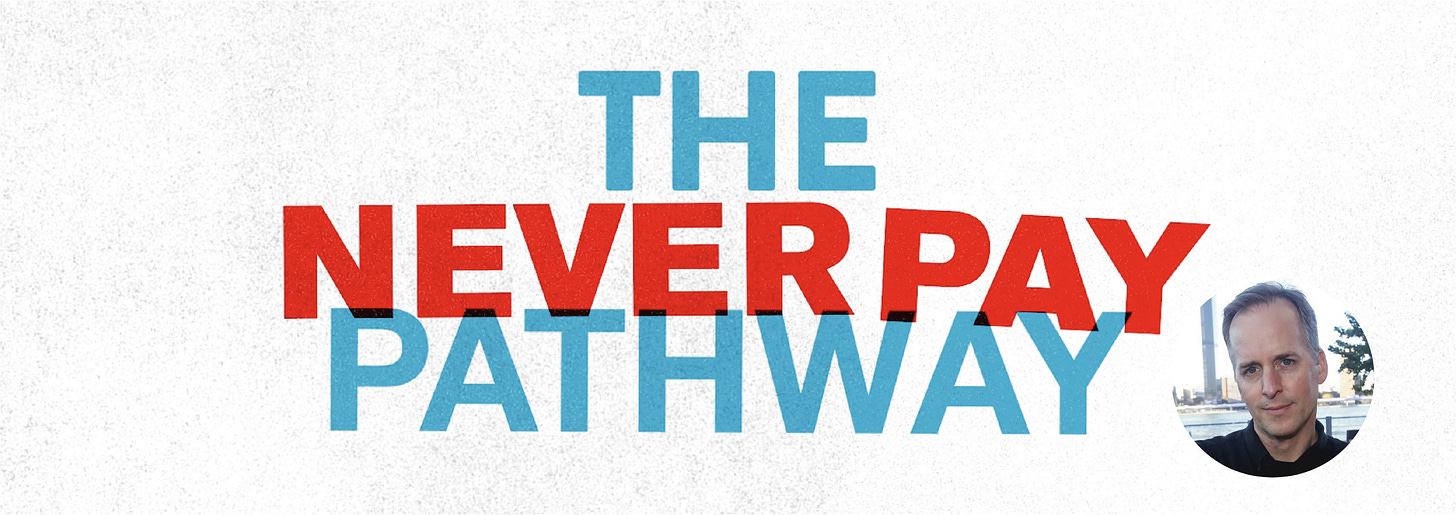Hospitals Are Required to Provide Financial Assistance, but They Keep it Hush-Hush
I saved a patient almost $5,000 with a financial assistance program, but the hospital didn’t make it easy. The case shows why we must educate patients.
What happens when you send a depressed and formerly suicidal patient overpriced medical bills that he cannot afford?
I didn’t want to find out, so I jumped in to help.
In this case, a patient who I’ll refer to as “T” to protect his privacy, had gone to the emergency room because he felt suicidal. They performed some blood tests, observed him and had him speak to a mental health specialist. After about five hours they released him to go home.
Thankfully, T has been doing well. The hospital’s treatment was appropriate, but its bills were not.
Somehow the bills for the short, medically uncomplicated visit amounted to $5,449!
T and I got connected because we attend the same church. Fortunately, T had been treated at a nonprofit hospital, and it was clear to me he would qualify for financial assistance. Nonprofit hospitals enjoy huge tax benefits, so the IRS requires them to provide financial assistance. The policies can be generous. I’ve seen hospitals offer hefty discounts to people who make six figures, depending on the size of their family and other matters. I teach people to apply for financial assistance in my book, Never Pay the First Bill, and my health literacy video curriculum, The Never Pay Pathway.
T was an obvious candidate for financial assistance. He hadn’t been able to work for years because of his depression. He’d been supported by his family and his tax returns showed no income for two years running.
T wasn’t in a mental place to take on the challenge of applying for financial assistance, so I did it for him. The experience highlighted several problems with the way hospitals provide financial assistance – and underscored the importance of educating patients.
Problem #1: The hospital didn’t tell T that he qualified for financial assistance. This is common.
Sending a suicidal patient an overpriced medical bill he cannot afford is shameful when he so obviously qualifies for financial assistance. When I first spoke to T he was understandably stressed about the bills. He had no money and didn’t know what to do. This is cruel for any patient, but especially heartless given T’s condition.
No one at the hospital told T he could apply for financial assistance. Nonprofit hospitals should screen patients for financial assistance. It should be presumed that they would provide assistance with the bills. No need to put the onus on the patient.
In some cases hospitals even manipulate and mislead the patients to avoid providing financial assistance. We are seeing this in a consumer protection lawsuit the Washington attorney general filed against the Providence Health System for failing to ensure that low-income patients received the discounts they were entitled to under the state’s charity care law.
The Washington case has unearthed some astonishing practices by the Providence hospitals to manipulate patients who should have had bills forgiven. The hospitals trained staff to “ask every patient every time” to pay medical costs, without disclosing the availability of charity care, the attorney general’s office has alleged. Slides from the training say “Don’t accept the first No” when it comes to pressing patients to pay. “Employees are also trained to use phrasing that gives patients the impression that ‘payment is expected,’” said the press release about the case.
Even worse – the Washington hospitals sent 46,783 patients who would have qualified for financial assistance to collections, the case alleges.
The nonprofit Dollar For – which I recommend highly because they will complete the financial assistance process for patients for free – put out a report recently that found something similar. The report said that Oregon hospitals have been suing thousands of patients for medical debt even though they should have qualified for financial assistance.
Sadly, it’s common for patients to have an experience like T’s.
To pile on, the hospital still sent T to collections, even though I had initiated the financial assistance process. Now, a patient who had been suicidal was getting five or six calls from debt collectors every day.
Problem #2: The hospital didn’t make it easy to get financial assistance.
It’s not complicated to apply for financial assistance at a hospital. I encourage anyone to do it, because often the applications are granted smoothly and efficiently. (I also urge everyone to check out Dollar For, the nonprofit that will complete the process for you – for free!) I completed the short application on T’s behalf and sent in documents to verify his low-income status. It should have been rapidly approved.
Instead, the process required three months of follow-up on my part to check in and nudge them through the process. These were not complicated phone calls. But it took persistence. It would have been discouraging if I didn’t know what I was doing.
There were consistent administrative blunders and delays by the hospital billing department. Each time I called they initially said I wasn’t listed as T’s advocate. One time they said they hadn’t received the documentation that verified his income, so I sent it again. And after they approved his application, it took weeks and repeated follow-up phone calls to send the confirmation letter.
During one call, the hospital’s billing representatives made it sound as if their financial assistance program was something the hospital did charitably. Yes, it’s charitable. But it’s also required by the federal government because of the hospital’s nonprofit status. Thus, patients have a right to have their medical bills forgiven.
Problem #3: Financial assistance policies don’t address the problem of overpriced medical bills.
I didn’t mind persisting and eventually, the hospital did the right thing. They gave T a 90% discount on his medical bills. He saved $4,904!
That’s awesome, but the discount should have been 100%, in my opinion. Still, we were thankful. T felt incredibly relieved, and the bills were paid through the generosity of the church.
But the whole thing left a bitter taste in my mouth. The price tag on his hospital visit had been outrageous. The 90% discount merely brought the price in line with what could have been a fair price. So should we pat them on the back for jacking up the price and then discounting it to what’s fair? I guess I should just say “thank you” for no longer price gouging a mentally distressed patient and calling off the debt collectors. I am grateful, but have mixed feelings.
The big problem: Patients need to be educated in advance about hospital financial assistance policies.
The overarching issue T’s story illustrates is the overall lack of patient education in the United States. If every patient knew in advance that they might qualify for financial assistance many more would apply. That’s why I’m teaching patients about the policies in my book and videos. Educating patients is a form of financial wellness. It should be taught in high schools and colleges as a form of financial health literacy. The training should be added to every benefits plan, so the patient and the plan are not on the hook for bills that should be forgiven.
I’m grateful that things worked out well for T. The process was relatively easy, given my persistence and knowledge, and we kept the stress to a minimum. Now we need to get the word out so more patients can be protected.
Takeaways:
1. Make sure you check your hospital’s financial assistance policy to see if you qualify. Many of them are generous.
2. Apply! Reach out to Dollar For if you need help. They will file the application and follow it up for you, for free.
3. Are you a benefits broker or employer? Consider using my Never Pay Pathway videos to train employees to utilize hospital financial assistance policies. It will save them – and the health plan – piles of money. Interested? Email us at neverpay@marshallallen.com.
The Never Pay Pathway Health Care Curriculum
I love to see working Americans have their mindset flipped by effective health literacy education. Our health care system isn’t broken. It was designed this way. It’s no accident that employers and working Americans keep paying more than they should for health care. But employees are not powerless.
Does your organization sponsor health benefits for your employees?
Want to see them get equipped to be savvy health care consumers?
I’m looking for bold employers to equip their employees with my Never Pay Pathway health literacy videos. They’re based on my book, Never Pay the First Bill, and the knowledge will transform the way your employees engage the health care system.
The videos are an ENGAGING resource that will save money for your employees, their families - and your health plan. Let’s stop overpaying for our health care, shall we? Email me at neverpay@marshallallen.com for more information.










I have discovered by working with my clients, that is financial assistance can be subjective.
Just listened to a good presentation by Propublica called "Medically Necessary ". Good panels and discussion on insurance claims/denials and appeals. Read the article on PP.